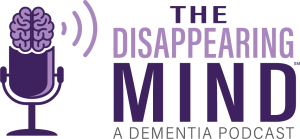Medical check-ups tend to become more frequent and, frankly, more essential in the later years. Yet, seeing a primary care doctor for seniors is about much more than lab results and prescriptions. A trusted doctor becomes a partner in health, an advocate, and even a friendly face who truly “gets” their individual needs.
Beyond the clinical, these relationships can bring peace of mind, support, and a proactive approach to health that really makes a difference.
Trust as the Foundation of Effective Care
Trust is a big part of the bond between seniors and their primary care doctor. For any patient, but particularly for seniors, feeling comfortable with a doctor means they’re more likely to share critical details about their health. Whether it’s small symptoms they might otherwise ignore or the real effects of a medication, patients are more likely to communicate openly with a doctor they trust.
This transparency allows doctors to pick up on subtle health changes that could be indicators of something more serious. With trust in place, seniors are less likely to skip appointments, more inclined to follow through with treatments, and generally feel more empowered in their own healthcare journey.
A Familiar Face in a Complex Medical System
The healthcare system can be overwhelming even for the savviest of seniors. With numerous specialists, labs, and treatment plans, it’s easy to feel like just another name on a chart. A primary care doctor serves as a guide, helping seniors make sense of complex medical instructions, procedures, and appointments.
With a doctor who knows their full health history, seniors are less likely to get lost in the shuffle. Their primary care physician understands their needs, preferences, and history, so each visit builds on the last. This continuity makes managing chronic conditions, understanding medications, and receiving preventative care more streamlined and less stressful.
Help with Healthcare Transitions
Seniors’ healthcare needs evolve, requiring a shift in care levels or adjustments to treatment plans. These transitions can be challenging, but having a trusted primary care doctor makes the process smoother. Be it moving to an Assisted Living community, considering home care options, or coordinating hospice care, a primary care doctor can provide guidance and referrals tailored to the senior’s unique needs.
A primary care doctor with an established relationship understands the senior’s values and preferences, allowing them to make recommendations that feel aligned with their goals and needs. This continuity of care during major life transitions brings both comfort and clarity to seniors and their families.
Consistency in Health Monitoring and Chronic Care
For many seniors, health conditions like high blood pressure, diabetes, arthritis, or heart disease require regular monitoring and careful management. A strong bond with a primary care doctor can make a world of difference in managing these long-term health concerns.
A primary care doctor familiar with a patient’s medical history can notice subtle changes that may signal the need for adjustments in treatment. They’ll track trends, adjust medications, and provide advice tailored to the individual, ensuring that care is responsive rather than reactive. This proactive approach helps seniors avoid potential complications, hospital visits, and unnecessary medications.
Personalized Preventative Care
Preventative care is a big part of senior health, as aging bodies face unique risks and challenges. A primary care doctor can tailor preventative strategies specifically to the patient’s needs. This could include creating a personalized plan for screenings, vaccinations, nutrition, and exercise.
Preventative care is most effective when there’s a consistent doctor-patient relationship. The doctor knows what preventive measures have been taken and can suggest screenings or lifestyle adjustments that align with the senior’s evolving health profile. It’s about crafting a wellness plan that makes sense for the individual—one that goes beyond generic advice to address real-life concerns.
Mental and Emotional Support
The role of a primary care doctor isn’t just medical; it’s also about providing emotional support. For seniors, regular visits can be as much about reassurance as they are about health. Doctors who build strong relationships with their patients take the time to ask about their lives, listen to their worries, and respond with empathy. This emotional support can be a lifeline for seniors who may feel isolated or uncertain about their health.
A doctor who takes the time to understand a senior’s lifestyle, habits, and even family dynamics can provide advice that fits seamlessly into their life. This sense of understanding and respect can reduce anxiety about health concerns and empower seniors to stay proactive about their well-being.
Improved Communication with Family Members
In many cases, family members play an active role in a senior’s healthcare, whether it’s attending appointments, managing medications, or simply staying informed about their loved one’s well-being. A good primary care doctor helps foster clear and open communication with both the senior and their family members.
Doctors who understand family dynamics can facilitate conversations that clarify treatment plans, answer questions, and ease family concerns. This collaboration with family gives seniors peace of mind and helps family members feel supported, informed, and involved. With this open line of communication, everyone is on the same page, creating a support system that truly benefits the senior.
A Lifelong Resource for Health Education
A primary care doctor is the go-to source for reliable health information, especially in an era where online health advice can be overwhelming and sometimes contradictory. Seniors can rely on their primary care doctor to debunk myths, provide current health recommendations, and explain medical conditions in a way that’s understandable and relevant.
Whether it’s clarifying the importance of certain lifestyle changes, explaining new treatment options, or simply offering practical advice on managing a condition, a primary care doctor becomes a lifelong resource for health education. For seniors who may feel out of touch with evolving medical practices, this support is comforting and empowering.
Your Trusted Roanoke Senior Living for Health and Happiness
Building a strong, trusting relationship with a primary care doctor can have a profound impact on a senior’s health and well-being. However, it’s just one piece of the puzzle to healthy living. At our Roanoke, VA Senior Living, we believe that assisted living should be as unique as the people who call it home. Our community combines stylish, spacious apartments, personalized care, and vibrant social activities, all designed to create an engaging and worry-free lifestyle.
From our Connections Transportation and beautifully landscaped grounds to round-the-clock assistance, we’re dedicated to supporting your independence while being there when you need us. Schedule a senior living tour to experience the comfort, care, and convenience that make our community a trusted choice for assisted living.








